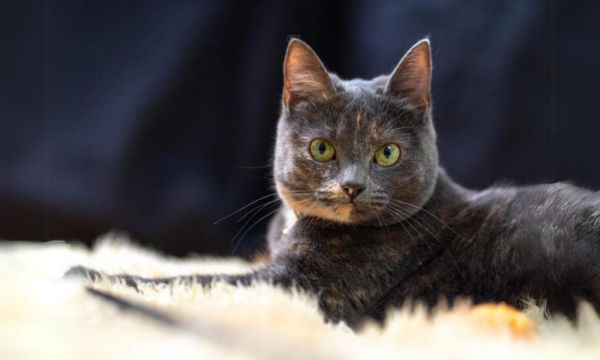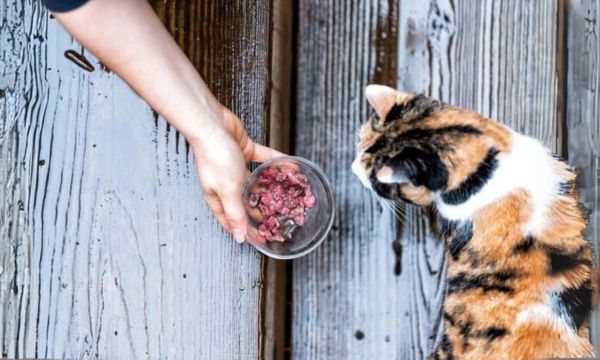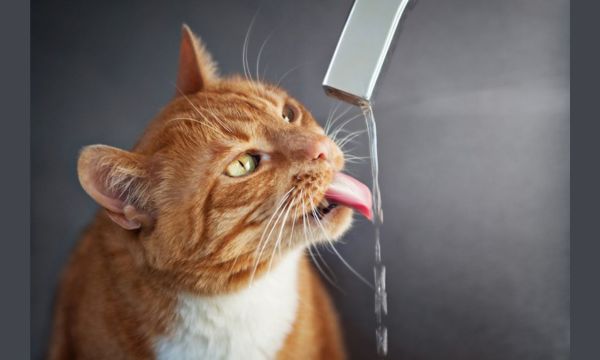As a dedicated cat owner, ensuring the health and vitality of your feline companion is of paramount importance.
An important aspect of keeping cats healthy is their diet.
High-protein cat foods have received a lot of attention in recent years for their potential benefits in promoting optimal feline health.
Let’s delve into the world of high-protein cat food and find out why it might just be the right choice for your beloved pet.
Understanding the Nutritional Needs of Cats
Cats are obligate carnivores, which means they need a diet consisting mainly of animal protein in order to thrive.
Their bodies have evolved to efficiently process and use protein for energy, muscle maintenance and overall health.
Unlike some other animals, cats have a high protein requirement and a low carbohydrate tolerance.
Benefits of a High-Protein Diet
- Muscle Maintenance: Protein is essential for maintaining lean muscle mass in cats. A high protein diet provides essential amino acids to support muscle development and recovery, so your cat will remain limber and active throughout its life.
- Weight e management: Cats fed a high protein diet tend to feel fuller for longer. This can help with weight management by reducing overeating and helping overweight cats shedxcess pounds.
- Healthy coat and skin: The quality of a cat’s coat and skin can be directly affected by its diet. Proteins help produce keratin, an important component of the coat, making it shinier and healthier.
- Improves Digestion: High protein diets, often formulated with easily digestible protein sources, promote better digestion and reduce the risk of gastrointestinal problems.
- Prevents chronic diseases: Some research suggests that a high-protein diet may help prevent certain chronic diseases, such as diabetes and kidney disease, that are common in cats.
Choosing the Right High-Protein Diet
It is important to consult your vet if you are considering a high protein diet for your cat. Not all cats have the same protein needs and factors such as age, weight and any existing health conditions should be taken into account.
Look for cat food that contains animal protein such as chicken, turkey, fish or beef as the main ingredient. Avoid products that contain excess fillers or artificial additives.
Reading labels and knowing the nutritional content of foods is essential for making informed decisions.
Switch to a High-Protein Diet
Switching your cat to a high protein diet requires careful consideration and a gradual transition to avoid indigestion. Here are some steps to ensure a smooth change:
- Consult your veterinarian: Consult your veterinarian before making any changes to your cat’s diet. They can assess your cat’s current health, give personal advice and recommend a suitable brand of protein-rich cat food.
- Slow transitions: Cats can be sensitive to sudden changes in diet. Start by mixing a small amount of the new high protein cat food with the current food. Gradually increase the proportion of the new food and reduce the proportion of the old food over a period of about a week.
- Monitor changes: As you switch your cat to a new diet, pay close attention to any changes in his behavior, appetite and digestion. If you notice any side effects or unusual symptoms, consult your veterinarian immediately.
- Hydration: A high-protein diet can increase water intake, which benefits kidney health. Make sure your cat always has access to clean, fresh water.
- Adjust portion sizes: High protein diets can contain more calories than other diets, so it’s important to adjust portion sizes accordingly to avoid overfeeding or underfeeding.
Common Misconceptions
While a high protein diet has many benefits, some common misconceptions should be dispelled:
- Excess protein is harmful: Although cats need a higher protein content, it is important to prevent them from consuming too much protein. Over time, a diet high in protein can put a strain on the kidneys. Balance is key.
- All proteins are equal: the source of your protein is important. From a biological point of view, animal proteins are more suitable for cats than vegetable proteins. Cats need certain amino acids found in animal tissues.
- Only protein is enough: While protein is essential, a balanced diet also contains other nutrients such as fats, vitamins and minerals. Look for a high-quality cat food that provides a complete and balanced nutritional profile.
Conclusion
Embracing a high-protein diet can be a positive step in ensuring your cat’s long-term health and vitality. However, every cat is unique and its nutritional needs may vary.
By working with your veterinarian and making informed decisions, you can provide your feline companion with the best possible care.
A high protein diet tailored to a cat’s individual needs has the potential to support muscle maintenance, weight management and overall health. Remember, a healthy cat is a happy cat.
Frequently Asked Questions
1. Is a high protein diet suitable for all cats?
A high protein diet can benefit many cats, especially those that thrive on animal protein. However, it is very important to consult your veterinarian before making any dietary changes, as individual cats may have unique nutritional needs.
2. How do I know if my cat needs a high protein diet?
If your cat is active, maintains a healthy weight and has no underlying health issues, he’s probably eating an appropriate diet.
However, if you’re not sure, discussing your cat’s diet with your vet can help clarify things.
3. Can I transfer my cat to a high protein diet?
Sudden changes in a cat’s diet are generally not recommended. Cats have a sensitive digestive system and sudden changes can cause gastrointestinal problems.
A gradual transition over about a week is recommended.
4. What are the potential benefits of a high protein diet for my cat?
A high-protein diet can support muscle maintenance, weight management, and healthy skin and hair. They may also help prevent certain chronic diseases, such as diabetes and kidney disease.
5. Can a High Protein Diet Cause Kidney Problems in Cats?
Contrary to popular belief, a balanced high-protein diet in itself is not bad for your cat’s kidneys. In fact, it’s more important to focus on the quality of your protein than the quantity.
Consult your vet to determine the correct protein level for your cat.


